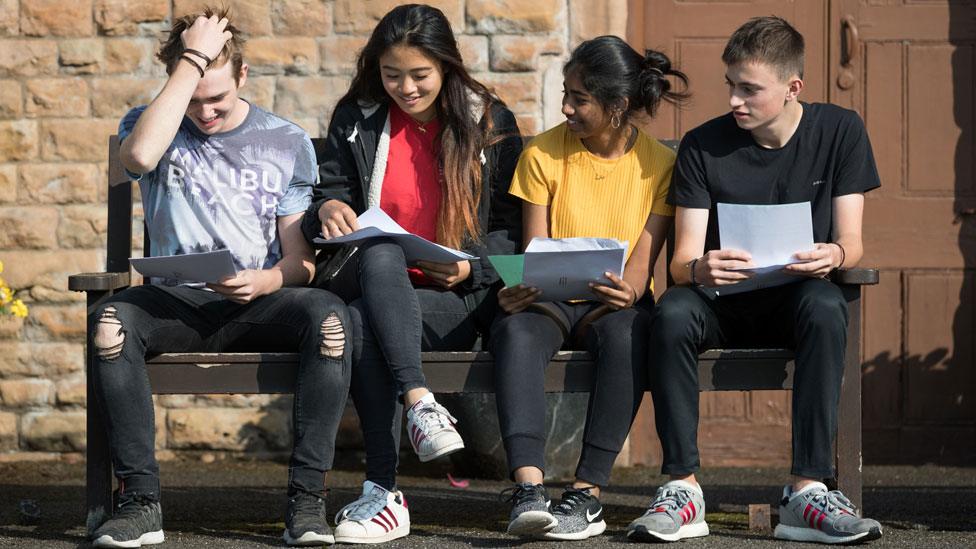Queen's University cuts medicine course offers for 2021 students
- Published
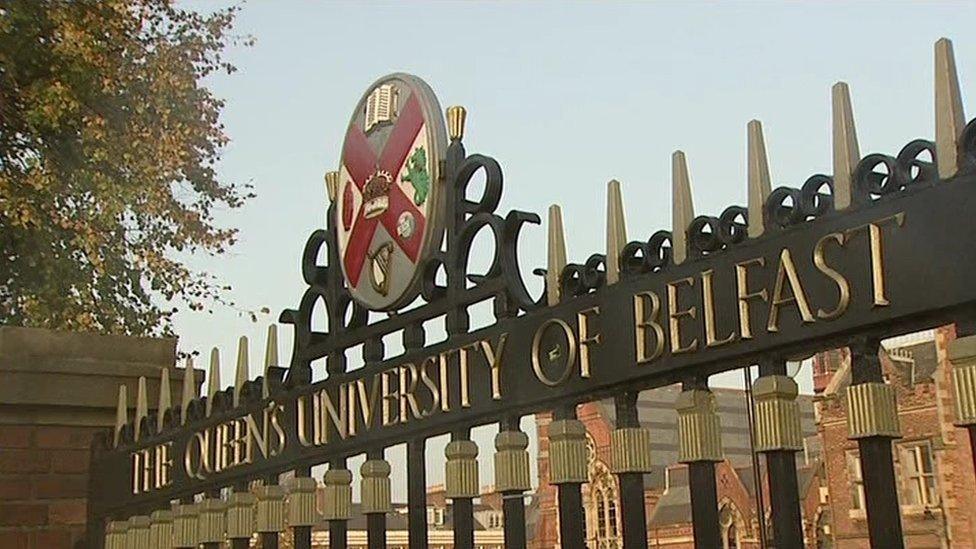
Queen's University Belfast (QUB) has made about 150 fewer offers to students who have applied to study medicine in 2021.
The university said it had made the move to "take into account" an expected rise in A-level results.
It also wanted to ensure it did not exceed the 236 places it had available.
There are also indications that some other universities across the UK are making similar reductions in offers for some courses.
One mother of a Belfast pupil, who had been rejected by four universities to study dentistry despite having been predicted to receive A grades, said his confidence had been "completely knocked out".
Universities usually make more offers to new students than they have places on many courses.
That is because some students won't get the grades they need to enter a course while others will decide to take up an offer of a place elsewhere.
Universities have to admit students who meet their offer grades.
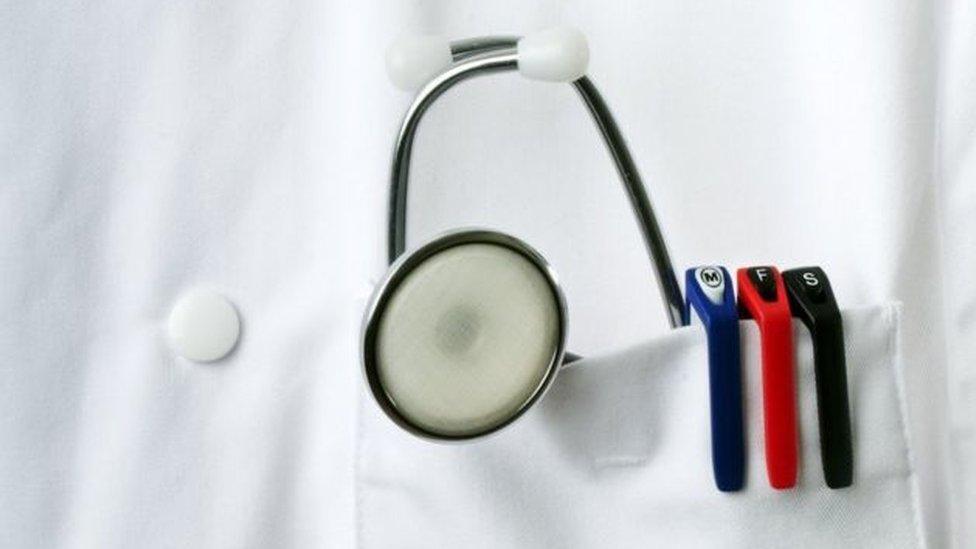
In 2020, more students achieved the grades needed to study medicine at QUB than there were places available
In 2020, Queen's University made 435 offers to new students for 236 medical places.
Medicine is a course that is often in high-demand and students normally need A* or A grades at A-level to enter.
However, following a change in the way A-level results were awarded, as exams were cancelled in 2020, more students achieved the grades needed to enter the QUB course than there were places available.
The university was eventually awarded an additional 80 places to admit medical students who achieved the necessary grades in 2020 although some had to defer entry until 2021.
Exams have been cancelled again in 2021 and schools will again calculate the grades awarded to pupils.
'Many more applicants'
In a statement to BBC News NI, QUB said it had made 282 offers to Northern Irish and other UK and EU students who had applied for its 236 medical places in 2021, down from 435 in 2020.
It said it had received 1,125 applications to study medicine in all.
"The recent change in format for the summer 2021 examinations must be taken into account in relation to offers," it said.
"The education departments in Great Britain and Northern Ireland announced the cancellation of formal written examinations this summer.
"A-level grades, for example, will now be based on centre-determined grades.
"Experience of this procedure in summer 2020 meant that many more applicants with offers for a medical place met their entry requirements than in previous years.
"To ensure that the Medical School does not exceed the 236 places for Home/EU (Republic of Ireland)/EU (other - those who have settled or pre-settled status under Brexit legislation) applicants, we must monitor the number of offers awarded very carefully.
"This means unfortunately there will initially be a reduction in the number of offers made.
"This is in line with practices at most Medical Schools in the UK."
The university said "more offers may be available as the admissions cycle progresses".
"The number of medical student places is set by the Department of Health along with stringent criteria for entry in line with their workforce planning requirements."
'An impact for years to come'
But an A-Level pupil, who was turned down for a medical place and contacted BBC News NI, said it was "unfair" that the number of offers had been "drastically" reduced.
"I feel the fair thing for Queen's to do is to defer 50-60 students to start next year, like they did for last year," they said.
"It is frustrating that any other year my place would not have been in doubt due to my interview ranking.
"Instead, now I have no idea what's ahead of me and I'm left having to prepare to reapply."
They added: "This cannot be ignored and needs addressed now, otherwise it will have an impact for years to come.
"The lack of offers does seem to have become the elephant in the room."
The Guardian newspaper recently revealed evidence that other universities across the UK were also making fewer offers to students, external to enter some high-demand courses.
Scottish universities are also not admitting new students to any dentistry courses in 2021, as final year students from 2020 are yet to graduate because of the coronavirus pandemic.
'His confidence was completely knocked out of him'
Kelly Haycock's son has been rejected to begin studying dentistry at four universities in 2021 despite being predicted A grades at A-level.
"He's only ever wanted to be a dentist, it has been his ambition for his whole school life," she told BBC News NI.
"He's worked really hard to get the grades that he needs to become a dentist.
"He's also had a job within dental practice as well for about a year and a half."
Kelly lives in Belfast and said her son was "deflated" by being rejected.
"I think his confidence was completely knocked out of him," she said.
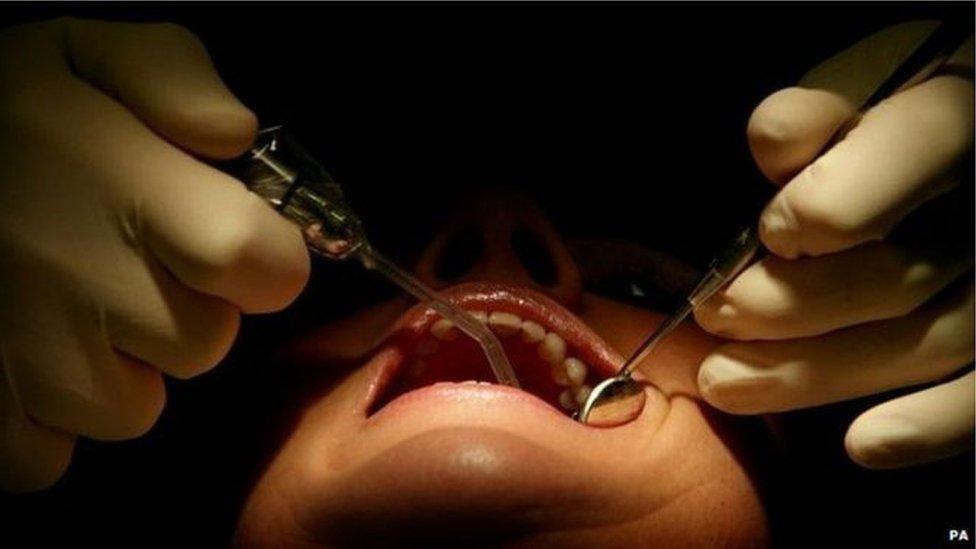
Dentistry is a very popular degree course at QUB
"It's going to be a double amount of students again applying next year and I think that's going to be going on for a while, it's going to have a knock-on effect."
Dentistry is a very popular degree course which attracts a lot of applicants at many universities.
Kelly said her son had been left "in limbo" but would probably reapply to get into university in 2022.
"He had been offered other degree courses but it's not what he wants to do," she said.
"He's only ever had his heart set on dentistry."
Separate statistics released by the Department of Education show a rise of 11 percentage points in the number of school leavers achieving at least 3 A-levels at grades A*-C in 2020.
In 2019, 41% of school leavers achieved at least 3 A-Levels at grades A*-C.
That rose to over 52% of school leavers in 2020.
Related topics
- Published11 September 2020
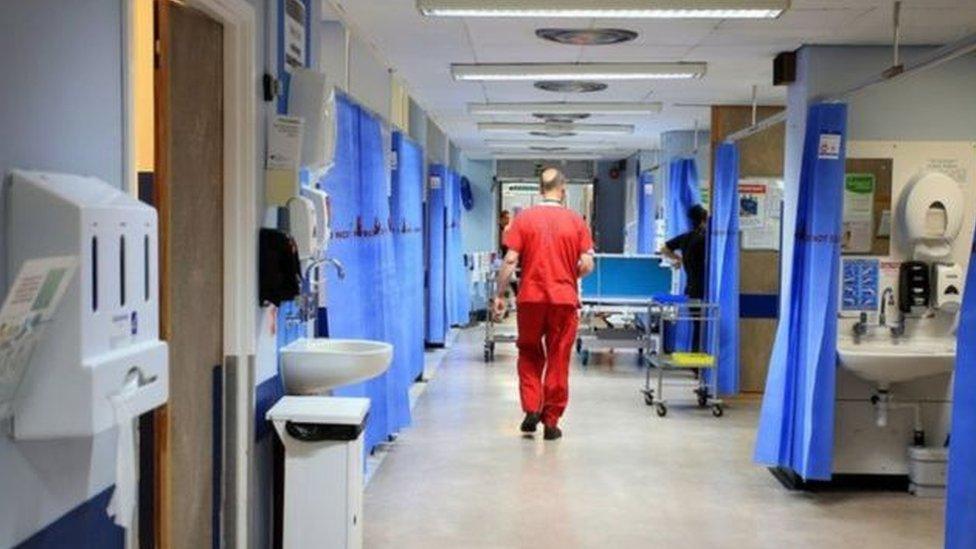
- Published10 August 2020
